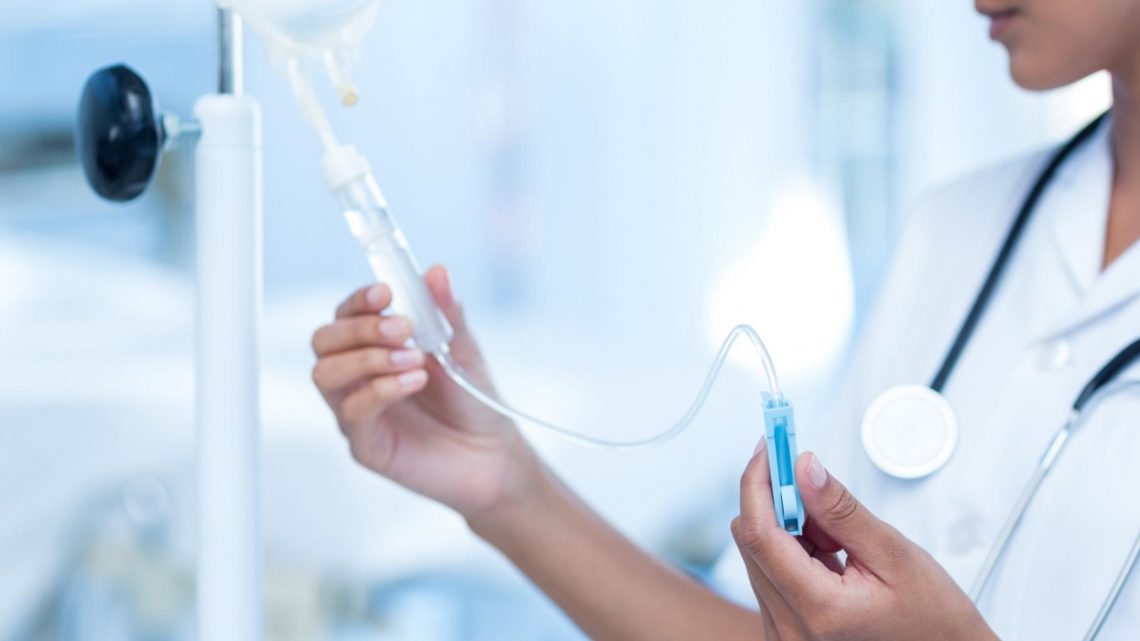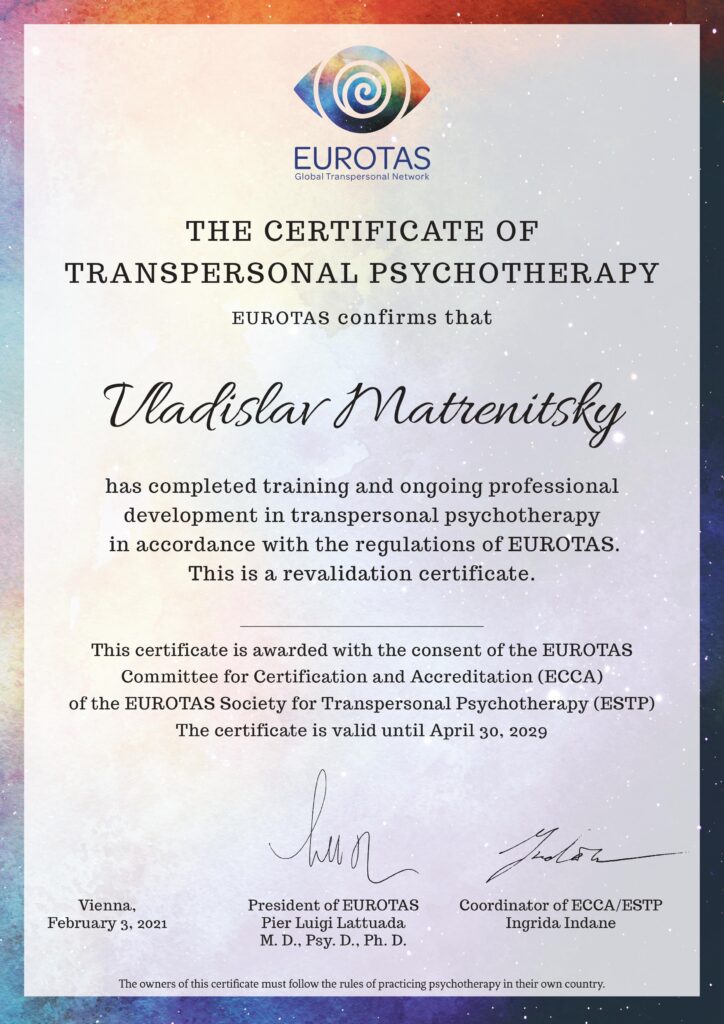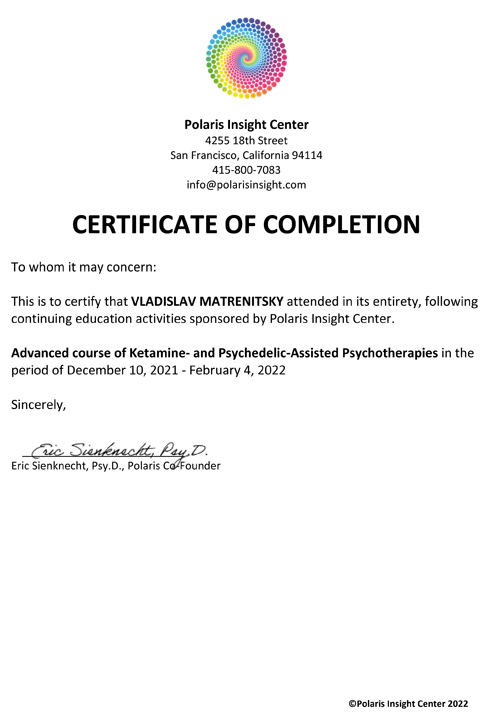
Ketamine therapy is a new, promising, FDA approved method of treatment of mental disorders, behavioral problems, and pain syndromes. A decade and a half ago first reports in the scientific literature appeared that intravenous delivery of sub-anaesthetic doses of ketamine has a therapeutic effect in curing depression. Even a single injection of this drug produces a significant and rapid antidepressant effect on patients with persistent depression not amenable to other drugs.
As it is known, traditional antidepressants begin to exert an effect only in a few weeks or even months, and their effectiveness has recently been questioned. For example, in 2010 a reputable medical journal JAMA claims that many popular antidepressants in most cases work no better than ordinary placebo. Approximately 40 percent of people suffering from depression do not respond to medication. On the contrary, about 70 percent of patients who are resistant to treatment with antidepressants are found to improve within hours after receiving ketamine.
According to Ronald Duman, a professor of psychiatry and neurobiology at Yale University, “The rapid therapeutic response of ketamine in treatment-resistant patients is the biggest breakthrough in depression research over the last 50 years. It’s like a magic drug — one dose can work rapidly and last for 7-10 days.”
Following the use in depression, scientific evidence has emerged about the effectiveness of ketamine for treatment of increased anxiety, post-traumatic stress disorder (PTSD), obsessive-compulsive disorder (OCD), burnout as a form of chronic stress, and long-term pain syndromes (often having psychosomatic origin), such as migraine, fibromyalgia, rheumatoid arthritis, irritable bowel syndrome and others.
It is especially important that during treatment patients whose intellectual activity and ability to learn from mental disorders and pain are often reduced, become more susceptible to psychotherapy. An important period arises when it becomes possible to work effectively with the patient to achieve long-term remission. By varying the ketamine dosage, we can achieve a psychedelic state of consciousness with an expanded spatio-temporal perception resulting in a deep transpersonal and transformational effect. This leads to changes in the patient’s system of values, and to sustainable and positive psychological changes.
Patients become more confident about their capabilities and about their future, less anxious and neurotic, more balanced, emotionally open and self-sufficient. Their level of inner tension, discomfort, emotional isolation, and passive position reduces, while self-esteem, coping abilities, and creativity increase.
A person’s views on the meaning of life, his/her identity, the world, the issues of life and death are changing, the spiritual horizon is expanding, relations with other people are improving, personal growth and self-knowledge begin.
This is the aspect we consider the main in the mechanism of ketamine action. Today, there is a tendency to simplify the use of this drug, prescribing it without psychotherapy as a regular psychotropic remedy. However, with this approach, the main potential of ketamine therapy is lost. We understand the reasons for this simplification – indeed, very few psychiatrists and psychotherapists have the necessary knowledge and experience in working with altered states of consciousness, such as those caused by ketamine.
In this aspect, the qualification of the head of the Center, Vladislav Matrenitsky MD, PhD, is one of the highest in Ukraine, since he has been studying altered states of consciousness for many years, including Siberian shamanism and Buddhism. Dr. Matrenitsky certified as transpersonal psychotherapist international EUROTAS Association (Vienna) and in 2022 completed the Advanced course of Ketamine and Psychedelic-Assisted Psychotherapies in Polaris Insight Center (USA). He is also co-founder of Ukrainian Psychedelic Research Association (UPRA).
Our Expio Center for Psychotherapy, Psychosomatics and Psychedelic Medicine is the only legal provider of ketamine therapy in Ukraine and Eastern Europe (ex-USSR). Since 2018, we have completed more than 500 ketamine sessions
A course of treatment, as a rule, consists of 4 to 6 infusions with micro doses of ketamine, administered for 40 to 60 minutes, 1-2 times per week. For severe depression and pain syndromes it can be prescribed daily. The positive effect of the drug usually remains for 3-5 weeks after the course, sometimes up to 12 weeks.
Ketamine has virtually no side effects as it has negligible toxicity. Most often, patients report a state of peace, loss of fear, peace of mind, or elation during the session. Sometimes there is a feeling of warmth, light dizziness or anxiety, temporary headaches or dry mouth, nausea, minor visual or motor coordination disorders, and slight fluctuations in blood pressure. All of these disappear soon after the infusion is over.
Due to the risk of nausea and vomiting, it is recommended to refrain from eating and drinking for at least 3 hours before the session. We closely monitor the patient’s reactions and provide all the necessary psychological and medical support during the session and in the following days. Patient is not allowed to drive a car or operate dangerous machinery for 24 hours after the session.
We do not recommend using ketamine infusion as an isolated method – it is more effective in combination with psychotherapy. Currently, we are developing our method – transpersonal ketamine-assisted psychotherapy.
Service is provided in English. Dr. Matrenitsky is a private health provider licensed by the Ministry of Health of Ukraine, as well as the State Drug Administration to use ketamine in clinical practice.
The prices is about 50% lower than in the USA and Europe.
In our center, we also offer other modern treatment methods in combination with ketamine that enhance its effect:
- Psychotherapy and hypnosis,
- Sodium oxybate infusions,
- “Neurohelp” infusions, where 7-9 neuroprotective and nootropic drug injected by special scheme,
- Transcranial magnetic brain stimulation (rTMS),
- Transcranial direct current brain stimulation (TCDS),
- Transcutaneous auricular vagus nerve stimulation,
- Transcranial brain photobiomodulation,
- Audio-visual brain stimulation.
The center is located in the 9th Children’s Clinical Hospital, on the 5th floor.
Address: 1/7 Kopylivska Str., Kyiv, 04073. Entrance on the left end of the building.
Tel. +380 7373 080 88. E-mail: info(at)ketamine.com.ua
Open Mon-Fri, 10.00 – 18.00. Admission by appointment.
Contact us by: Viber WhatsApp Telegram FB Messenger
Testimonial of our American patient Mark:
Media about us:
How Psychedelics Could Help Soldiers Overcome Trauma
Time
From Party Drug to Medicine: How Ketamine is Used to Treat Depression in Ukraine
Zaborona
Guerra en Ucrania: la salud mental en juego
France24
A new therapy for Ukraine’s scarred soldiers: ketamine
The Economist
Ukraine’s new cure for the horrors of war: Ketamine and MDMA Drugs could make men better warriors
UnHerd
Scarred: Ukrainians Defy the Trauma of War
Arte TV
In Ukraine, Ketamine-Assisted Therapy Aims to Heal the Mental Wounds of War
UNITED24 Media
Este médico ucraniano trata con ketamina a los veteranos del ejército: “El 80% tendrá problemas de salud mental”
elDiario
Psychedelic therapy with ketamine aims to ease PTSD for Ukrainian soldiers coming back scarred from front-line fighting
Business Insider
Exclusive: Inside the Ukrainian ketamine clinic treating soldiers suffering with PTSD
British Forces Broadcasting Service

